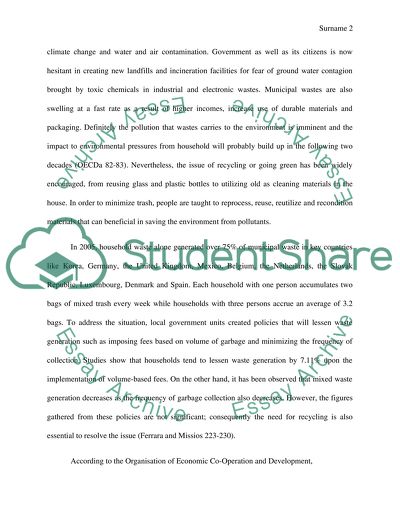Cite this document
(“Recycling as a Mandatory Process Research Paper”, n.d.)
Recycling as a Mandatory Process Research Paper. Retrieved from https://studentshare.org/english/1454849-should-recycling-be-mandatory
Recycling as a Mandatory Process Research Paper. Retrieved from https://studentshare.org/english/1454849-should-recycling-be-mandatory
(Recycling As a Mandatory Process Research Paper)
Recycling As a Mandatory Process Research Paper. https://studentshare.org/english/1454849-should-recycling-be-mandatory.
Recycling As a Mandatory Process Research Paper. https://studentshare.org/english/1454849-should-recycling-be-mandatory.
“Recycling As a Mandatory Process Research Paper”, n.d. https://studentshare.org/english/1454849-should-recycling-be-mandatory.


